Charlotte Fire's Water Rescue Team Responds to Hurricane Helene
Published on October 03, 2024
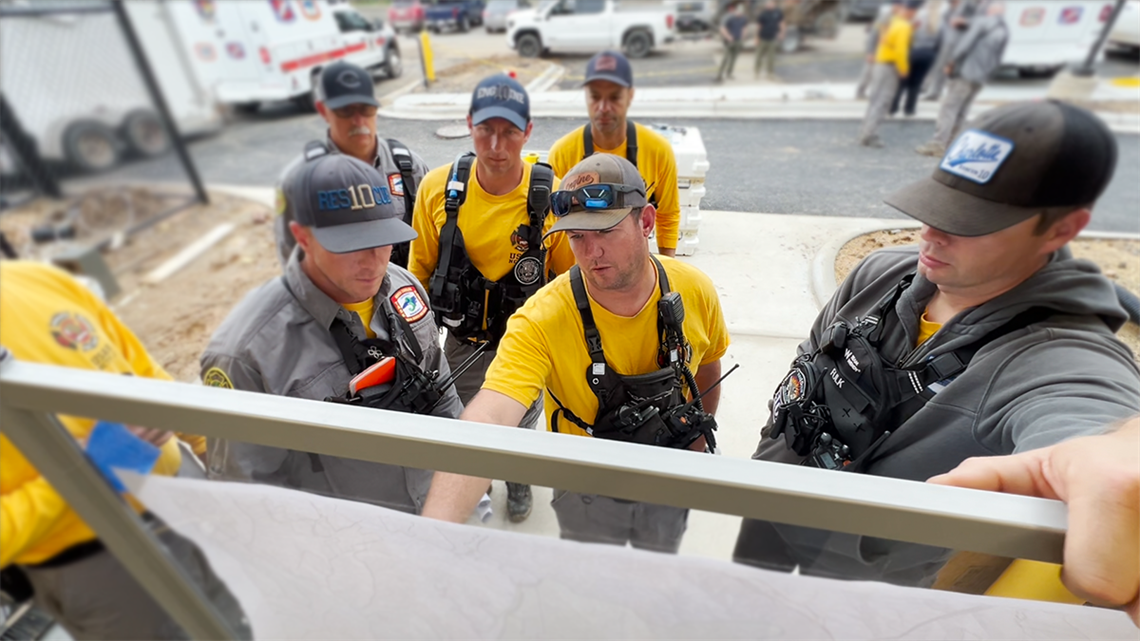
Charlotte Fire's Swift Water Rescue Team gathers around a map at daybreak, preparing their next move in Yancey County's recovery efforts after Hurricane Helene.
By Kevin Campbell
As the floodwaters from Hurricane Helene finally recede, the devastating toll on Yancey County and its surrounding areas comes into sharper focus. Torrential rains from the storm, which once roared ashore as a Category 3 hurricane, have left entire communities in ruins, with families grieving the loss of loved ones and homes swept away by relentless floodwaters. Amid this devastation, Charlotte Fire's Swift Water Rescue Team has been working tirelessly to help a region still struggling to recover.
"Our hearts go out to the families who have lost loves ones and homes in this storm. The devastation here is overwhelming, but Charlotte Fire stands with those in Yancey County who are suffering," said Charlotte Fire Chief Reginald Johnson. "Our firefighters are here to do everything we can to help bring relief and restore hope. This is what we train for, and this is what we will continue to do."
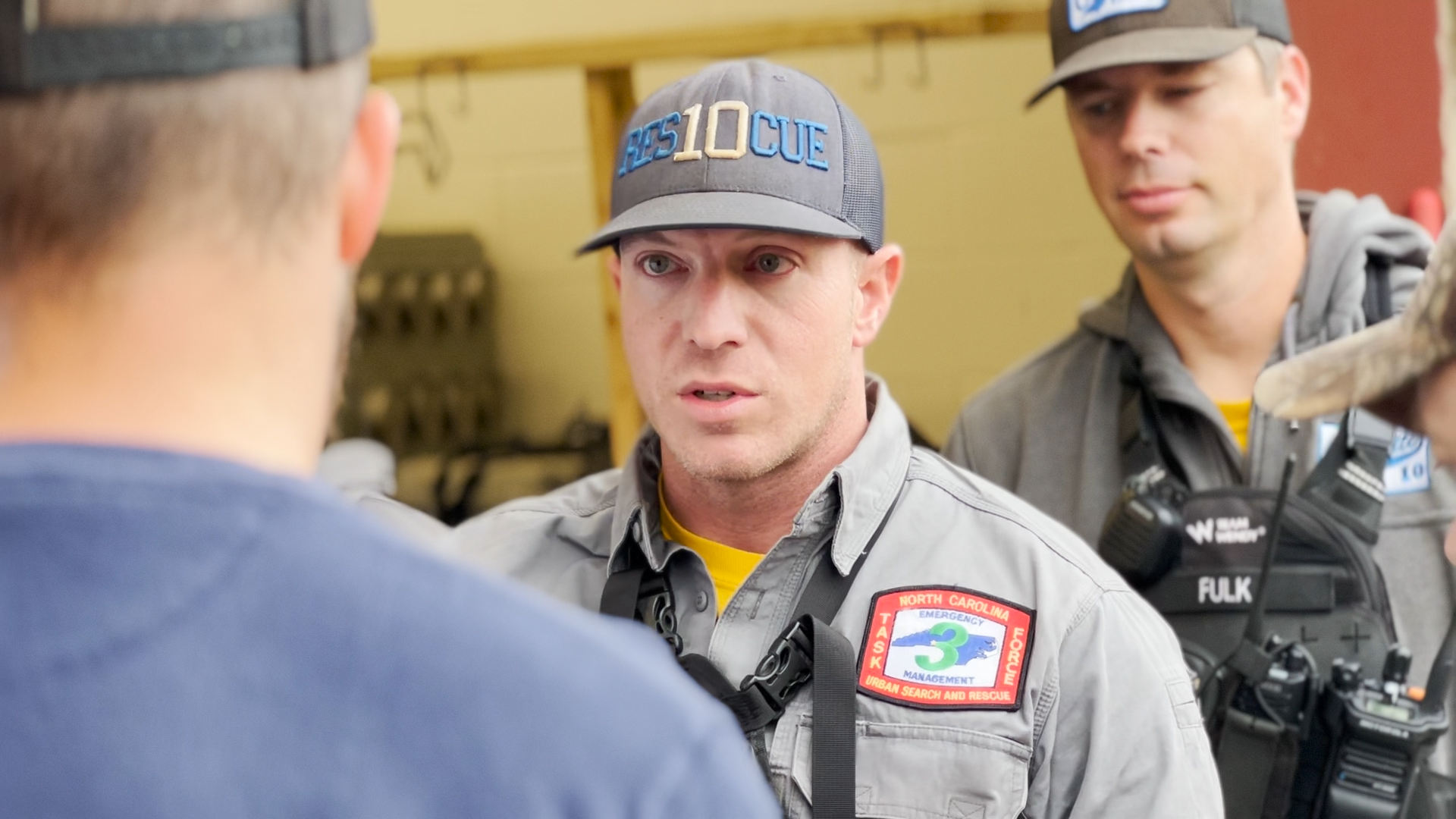
Charlotte Firefighter Bart Bell leads the morning briefing, preparing teams for another day of search, rescue, and recovery efforts.
Hurricane Helene may have weakened as it moved inland, but the deluge it brought to the mountainous areas of Western North Carolina was catastrophic. Over the course of the storm, some areas of Yancey County saw up to 12 inches of rain, overwhelming rivers and creeks and triggering landslides that buried homes and cut off entire communities. Roads that once connected these remote towns to the outside world disappeared under feet of water and debris, isolating thousands of residents in the process.
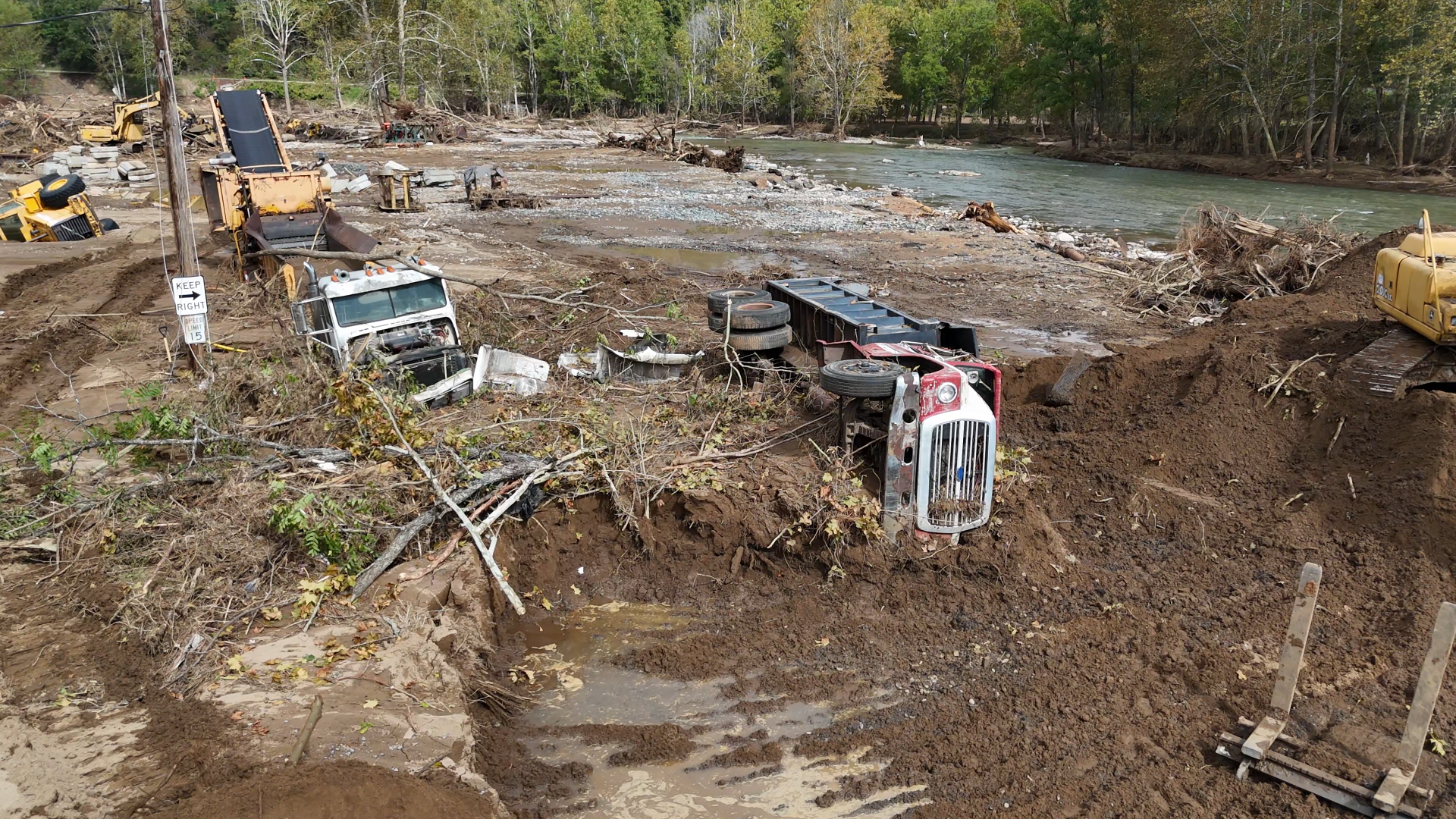
The aftermath of Hurricane Helene in Yancey County shows overturned trucks and heavy debris, highlighting the scale of destruction faced by the community.
Charlotte Fire's Swift Water Rescue Team, consisting of 17 firefighters trained in the most dangerous and complex of rescues, was deployed as part of a statewide emergency response. THeir mission: to rescue individuals stranded by the floodwaters, conduct wellness checks on isolated residents, and assist with recovery efforts in some of the hardest-hit areas.
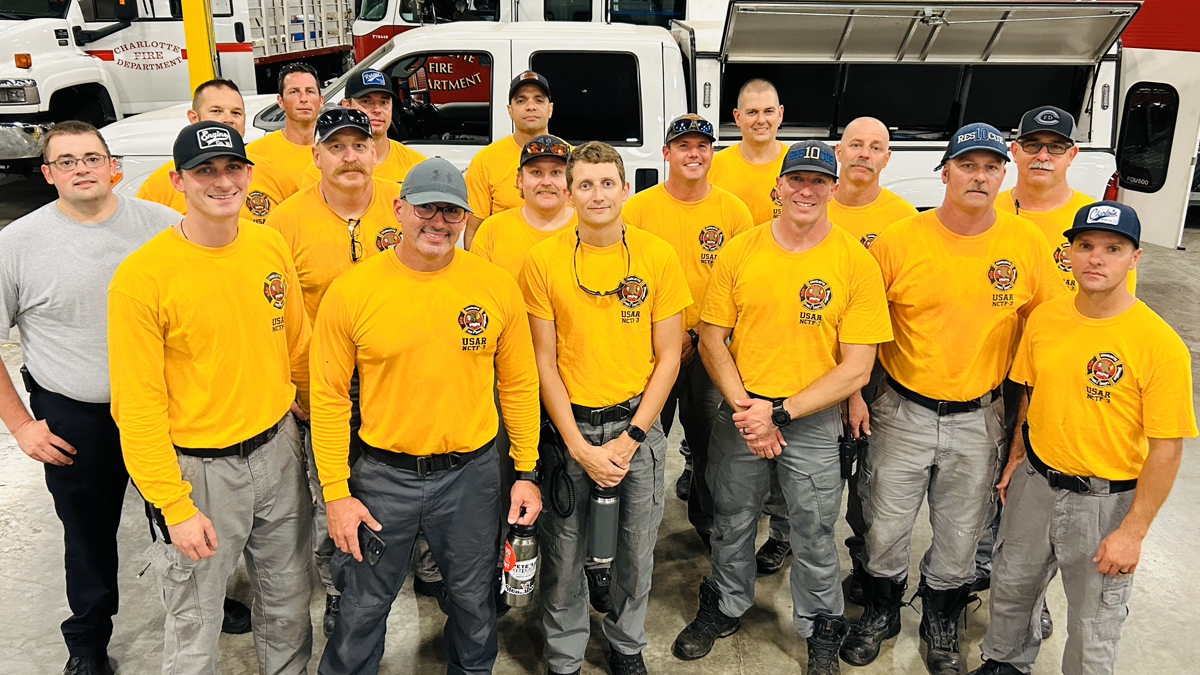
Charlotte Fire's Swift Water Rescue Team gathers for a final photo before departing for the Yancey County deployment, ready to assist the flood-stricken area.
"When we arrived, the devastation was unimaginable," said Charlotte Fire Captain Jeff Bright, leader of the Swift Water Rescue Team. "Entire communities were cut off, families were stranded, and there was no power, no running water, no phone service. But the people here are resilient, and we were determined to help in any way we could."
The Charlotte Fire team was met with daunting challenges from the moment they reached Yancey County. The mountainous terrain, already difficult to navigate, had become even more treacherous as heavy rains triggered massive mudslides that wiped out roads and bridges. Many areas were accessible only by foot or all-terrain vehicles, and in some cases, firefighters had to hike into remote communities to deliver aid and rescue residents.
"Our team was deployed into areas that had been cut off for days," explained Bright. "We used ATVs , helicopters, and even went in on foot to reach people. Some of the roads were impassable, and in many cases, we had to hike in to get to families who had been stranded. The floods were unlike anything I've seen."
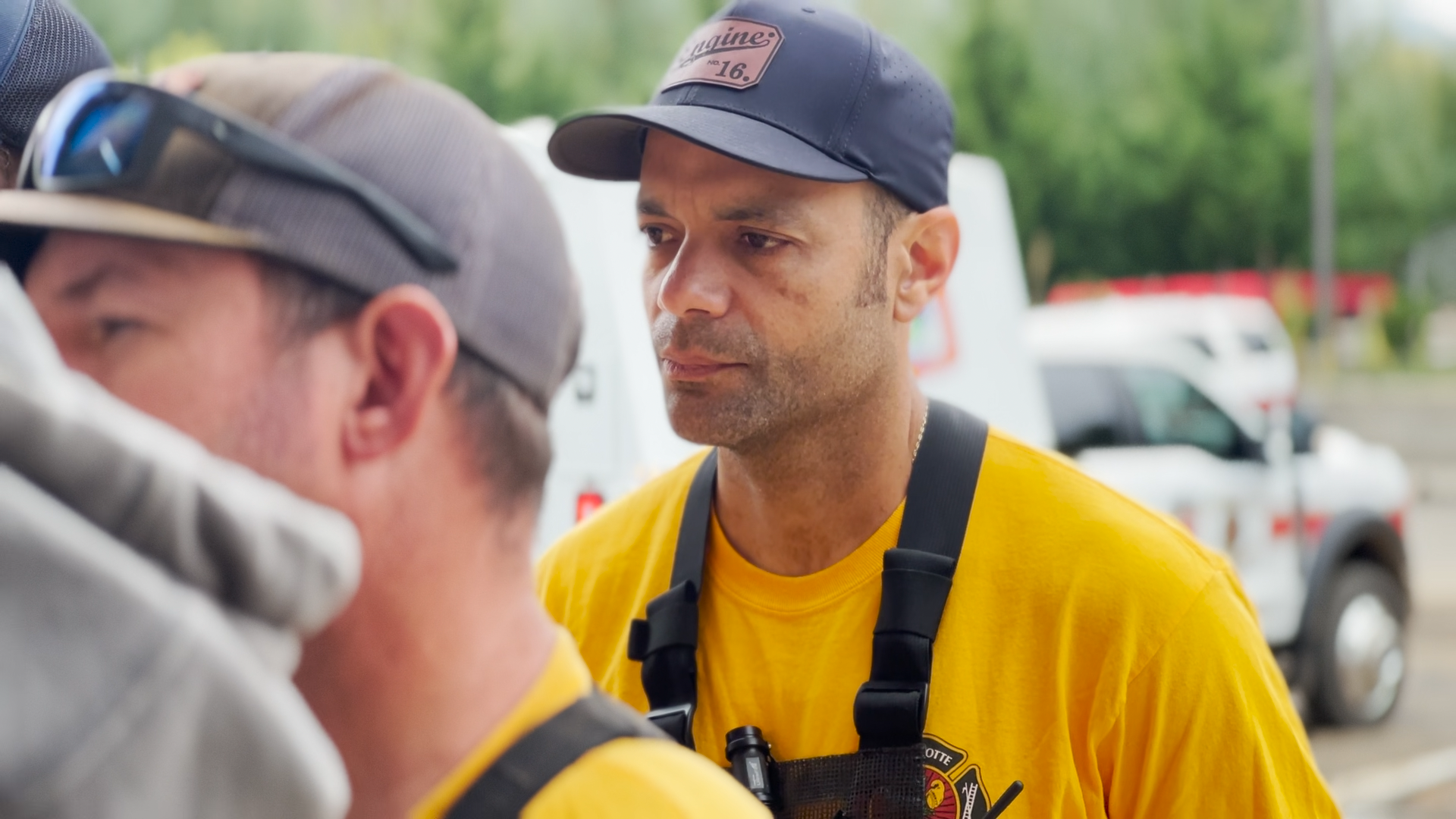
Captain Michael Ferreira reviews maps critical to navigating the remote and flood-impacted areas in Yancey County.
In one particularly devastated area, the South Toe River Valley, floodwaters rose rapidly, inundating homes and forcing residents to clib onto rooftops or higher grounds to escape. The Swift Wtare Rescue Team navigated these dangerous waters to extract individuals who had been trapped for days without food, water, or contact with the outside world.
"There were moments when it was life or death," Bright recalled. "We found families stranded on their roofs, elderly residents trapped in homes surrounded by water, and people who had been completely cut off from the world for days. Our job was to get them out, and we did everything we could to make sure that happened."
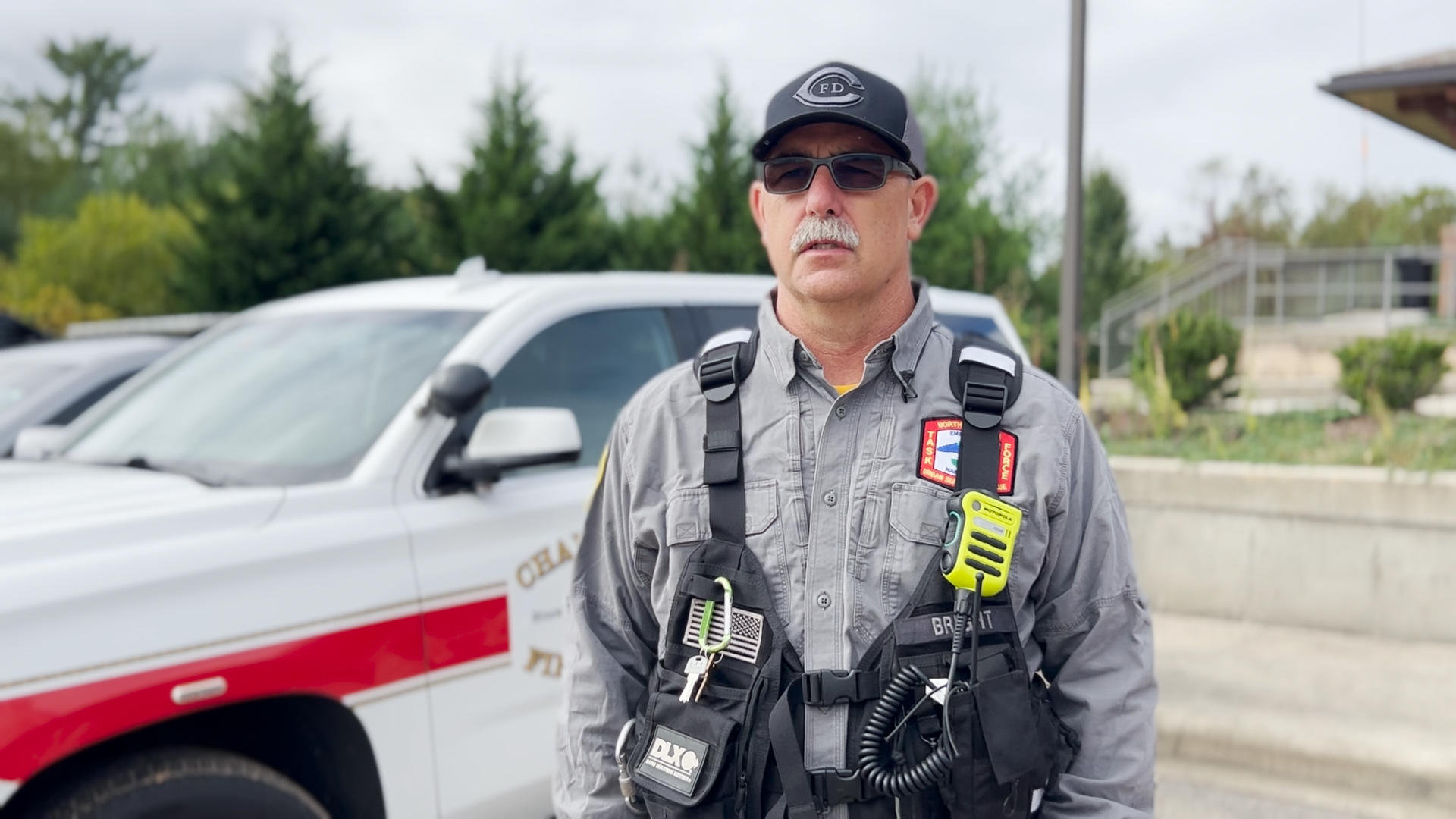
Captain Jeff Bright of Charlotte Fire assesses the ongoing recovery mission, ensuring all teams are well-coordinated during the challenging conditions.
But the mission didn't end with immediate rescues. As the floodwaters began to recede, the Charlotte firefighters shifted their focus to recovery operations. They assisted local emergency management teams with clearing debris, delivering essential supplies, and ensuring that isolated residents received necessary care. In areas where roads were still blocked or destroyed, firefighters hiked in daily to check on the welfare of residents and bring them food, water, and medicine.
"The recovery is going to take time, but this community is strong," Bright said. "We're not just here to pull people out of the water; we're here to help them rebuild. We've been working hand-in-hand with local leaders and volunteers, and the spirit of cooperation has been inspiring."
The people of Yancey County, known for their resilience and close-knit communities, welcomed the Charlotte firefighters with open arms. Despite the destruction, local residents worked alongside the rescue teams, offering critical knowledge of the terrain and helping clear paths through the mud and debris.
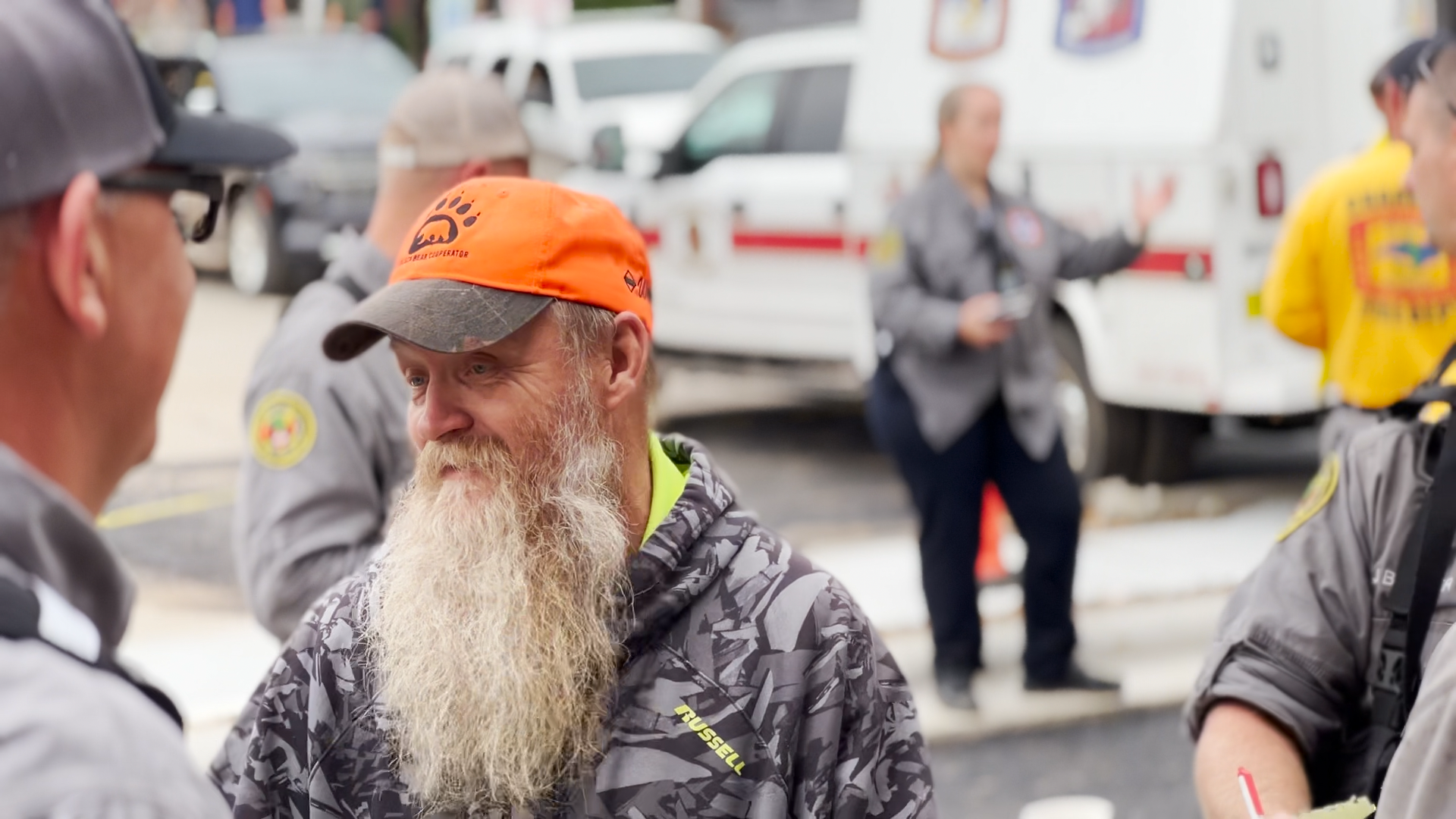
A local Yancey County resident works alongside Charlotte Fire crews, providing invaluable assistance with heavy machinery and local knowledge.
The community here has been unbelievable," said Bright. "They know the land better than anyone, and without their help, we would still be fighting an uphill battle. Together, we've made incredible progress."
Charlotte FIre Chief Reginald Johnson expressed his pride in the firefighter's efforts and reiterated the department's commitment to serving not only their own city but communities across the Carolinas in times of need.
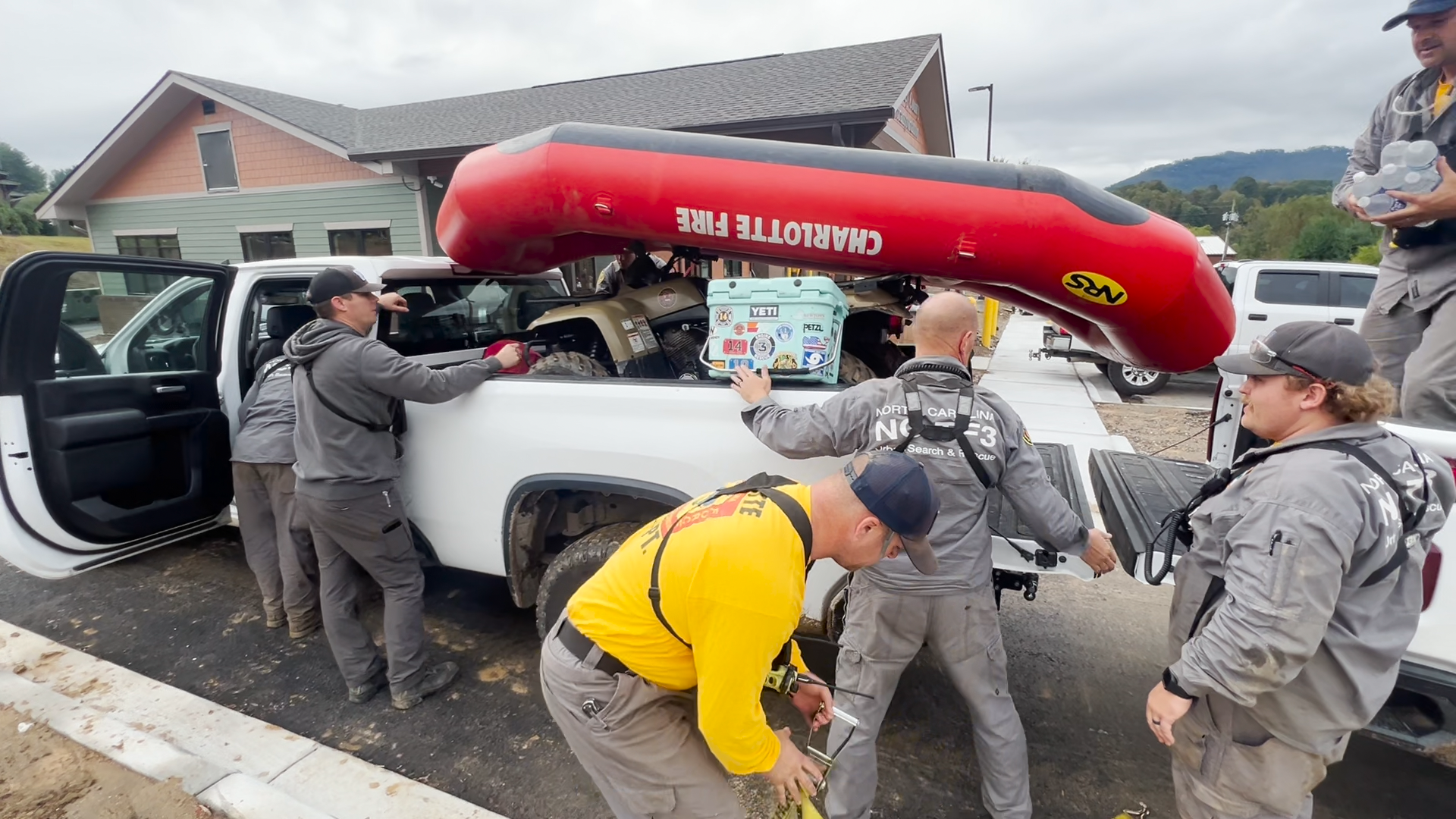
Charlotte FIre's Swift Water Rescue Team secures essential equipment, including an inflatable rescue boat, as they prepare to head into the flood-impacted areas of Yancey County to continue recovery efforts.
"I couldn't be prouder of the Swift Water Rescue Team," Chief Johnson said. "Their bravery and dedication exemplify everything that Charlotte Fire stands for. These firefighters didn't just save lives- they helped bring hope to a community devastated by this storm. Our commitment extends beyond Charlotte. When our neighbors across the Carolinas need help, we'll be there."
As Yancey County begins the long road to recovery, the Swift Water Rescue Team continues its work, providing support wherever it's needed. The storm may have passed, but the damage left behind will take months, if not years, to fully repair. Families who lost homes are faced with rebuilding from scratch, and many are still grappling with the emotional toll of the destruction. The Charlotte firefighters have seen the heartbreak firsthand - families torn apart, homes reduced to rubble, and lives lost to the storm.
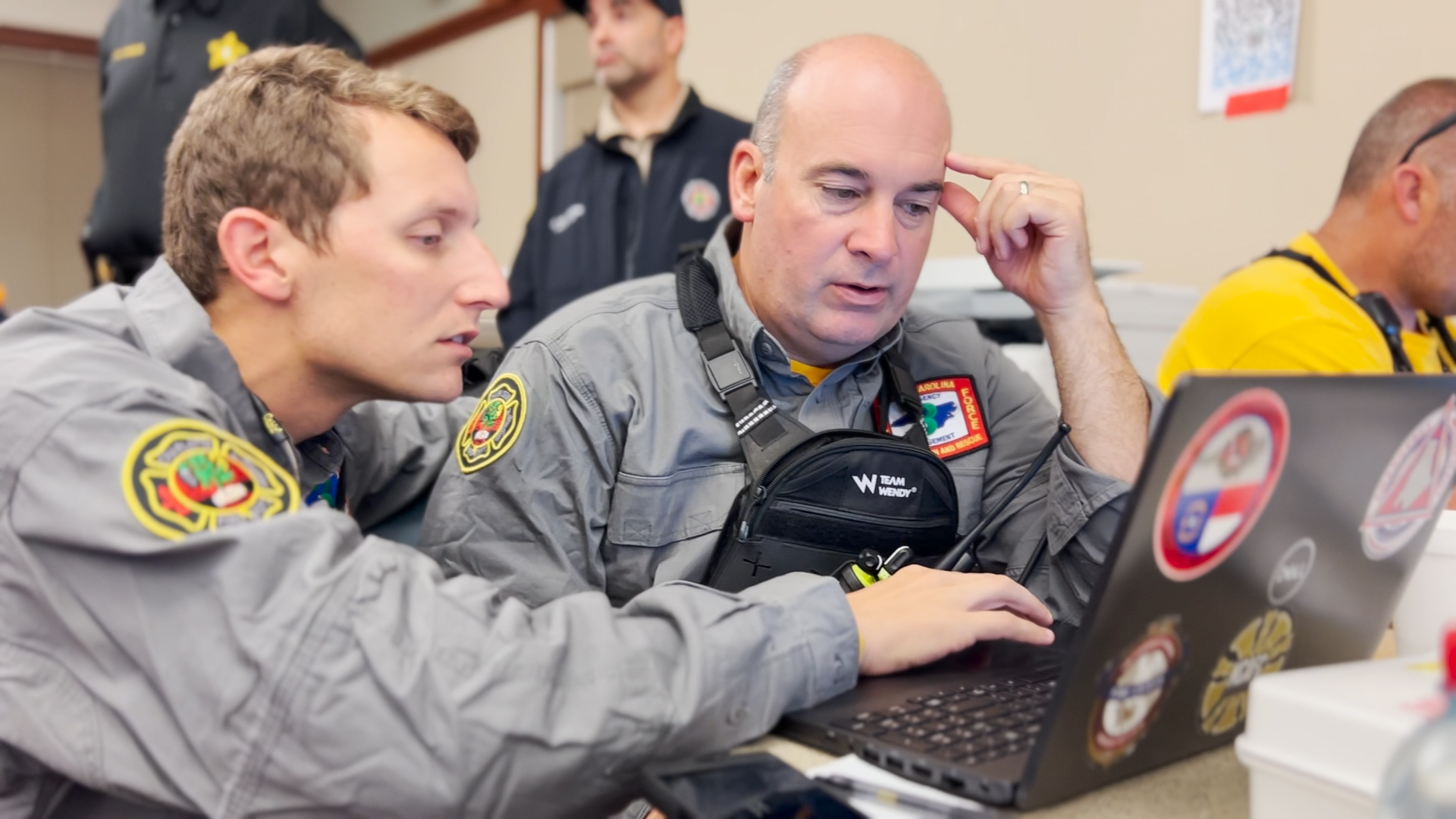
Firefighter Brian Watts (left) and Battalion Chief Jeremy Monteith collaborate in the field, finalizing plans for their next operation.
"There's a lot of heartache here," Bright acknowledged. "But for every heartbreaking moment, there's a glimmer of hope. Whether it's reuniting a family or delivering life-saving supplies, we're here to give this community a fighting chance."
Charlotte Fire's Swift Water Rescue Team will remain on the ground in Yancey County, continuing their vital work as the region moves from disaster response to long-term recovery. The firefighters have formed close bonds with the people they've rescued, many of whom say they will never forget the kindness and bravery of the Charlotte team.

A determined Yancey County resident assists Charlotte Fire in clearing debris and restoring access to isolated areas in the aftermath of the hurricane.
The storm may have passed, but for the people of Yancey County, the recovery has just begun. Thanks to the swift and heroic efforts of the Charlotte Fire Swift Water Rescue Team, they can begin that process knowing they are not alone.
For Chief Johnson, it's a testament to the spirit of service that defines Charlotte Fire. "This is what we train for," he said. "We're firefighters. We run toward danger when others can't. And we do it because care - about the people we serve, about each other, and about our mission. I couldn't be prouder of our team, and I know they'll continue to make us all proud as they carry on with this vital work."
As Yancey County rebuilds, Charlotte Fire urges residents in the affected areas to stay vigilant, follow local advisories, and prioritize safety. With the combined efforts of emergency teams, local volunteers, and firefighters like those from Charlotte, the region will rise from the floodwaters of Hurricane Helen - stronger and more united than ever.